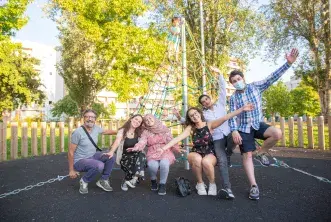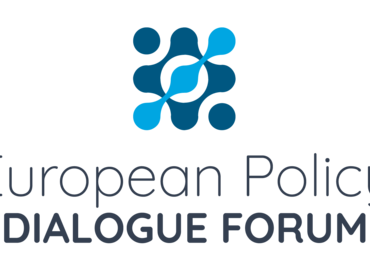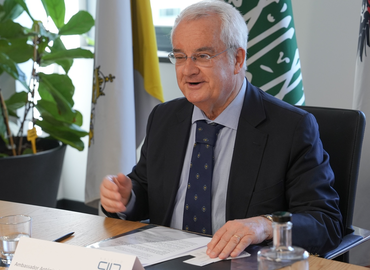Working Hard to Offer a Bright Future for Serbia’s Marginalised Communities
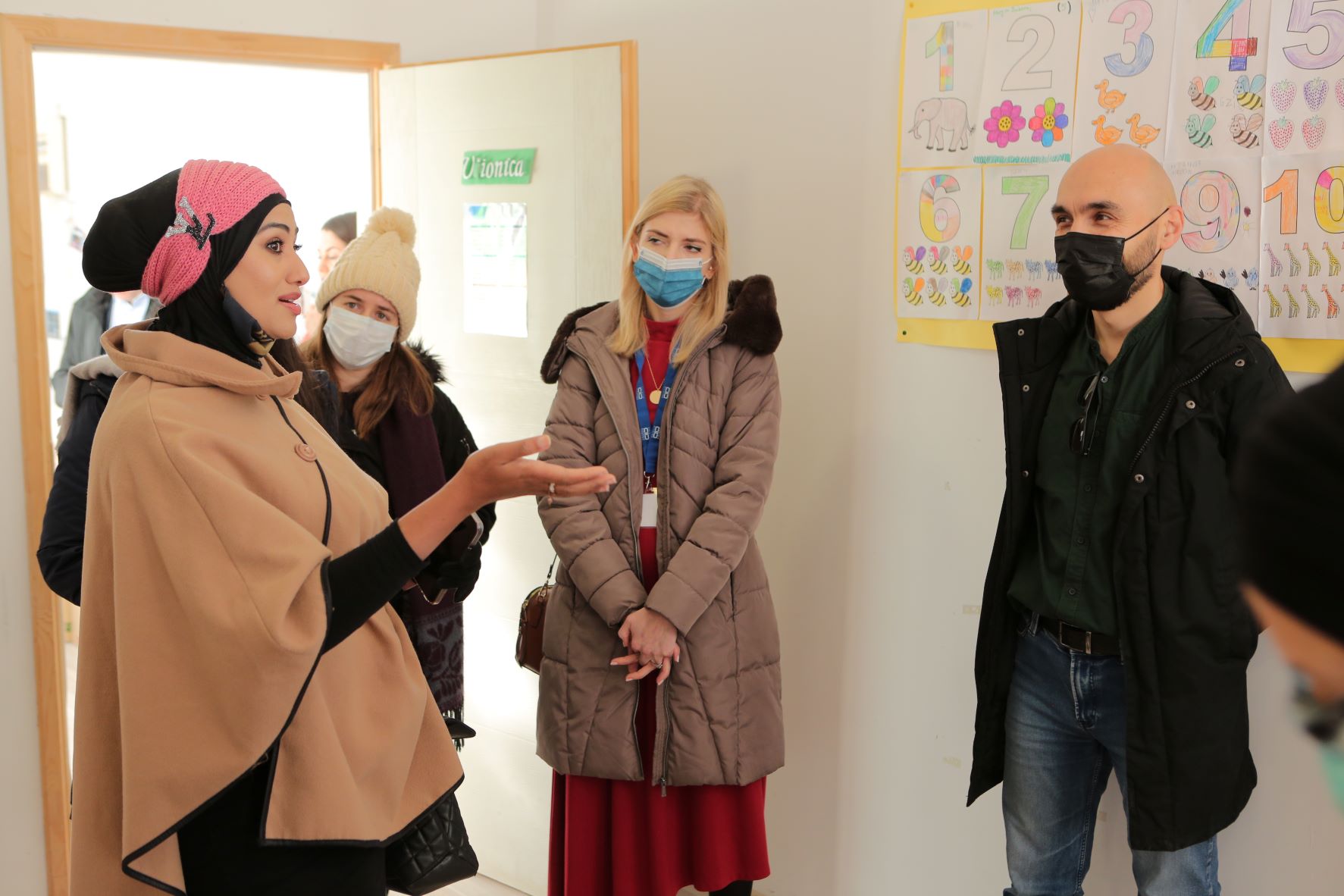
Humanitarian assistance is best administered face-to-face. Being able to look into a person’s eyes, to hold their hand or offer a hug, to engage with them on an emotional level. Each of these is crucial — and in the midst of the global pandemic, none have been possible.
All over the world, aid workers and activists have faced challenges that few could’ve predicted. For some, this has meant the temporary curtailment of relief activities; for others, a redoubling of efforts to help the communities in greatest need. The Adventist Development and Relief Agency (ADRA) is among the latter.
“Coronavirus has complicated our work hugely, because it hasn’t always been possible to be present in the communities we help as often as we’d like,” says Igor Mitrović, country director for ADRA — the international humanitarian arm of the Seventh-day Adventist Church — in Serbia. “So we’ve had to think creatively about how to reach people.”
In Serbia, the mission of ADRA –member of the KAICIID-supported “Network for Dialogue” since 2019 - focuses on three main groups: the Roma community, refugees, and the homeless. Working with policymakers, lawyers, and medical professionals, the organization aims to increase levels of education and economic empowerment, provide healthcare, reduce violence, and promote integration.
The pandemic’s third wave
In August 2021, as Serbia braced for a third wave of COVID-19 infections, ADRA feared a humanitarian disaster was imminent. In response, the group launched its Leave No One Behind project — a scheme designed to safeguard the country’s most vulnerable communities.
Since then, up to 15,000 homeless people, members of the Roma minority, refugees, and individuals living in remote locations have received help from ADRA staff, ranging from coronavirus advice and hygiene services to health check-ups.
It’s vital work that Mitrović’s team is carrying out. On the fringes of society, the minority groups that ADRA helps often lack information on how best to protect themselves from the virus, including how to organise COVID-19 vaccinations. There’s also a lack of awareness around the importance of preventing the spread of germs, Mitrović says, as well as a worrying lack of basic sanitation facilities.
Of equal importance is the Leave No One Behind project’s provision of healthcare. While doctors and nurses can offer basic medical examinations — such as measuring blood pressure and blood sugar — and offer patients advice on how to improve their overall health, issues often arise around personal identification.
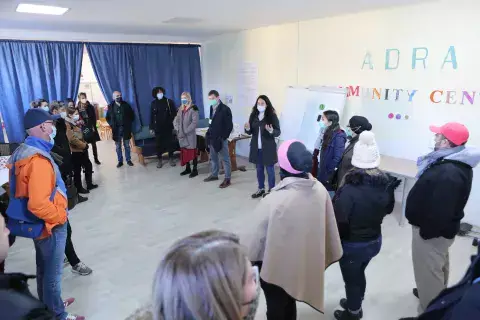
In order to use Serbia’s healthcare system or access government benefits, including basic health insurance, individuals must present a form of ID — something that refugees, Roma individuals, and homeless people often lack. Addressing this issue, ADRA personnel and volunteers help members of these marginalised groups through the identification card application process, providing legal assistance for those without the proper documentation.
The importance of intercultural dialogue
Helping Serbia’s disenfranchised minorities is an exercise in intercultural communication, with the country’s homeless, Roma, and refugee communities each culturally distinct from the majority.
“All three of the groups we work with have their own cultural milieu and idioms, so some sort of skill in crossing the cultural divide is needed,” Mitrović says.
The Roma community in Serbia are mostly of Muslim faith and originate from Kosovo, having fled during the country’s brutal civil war in the 1990s. Despite having lived in and around Belgrade for almost two decades, the group predominantly speaks Albanian, so language barriers are the first obstacle ADRA staff have to overcome. For this — and to navigate other ethno-religious challenges — the organization employs Roma professionals to help bridge the cultural gap.
A similar approach is taken with Serbia’s refugee groups. Mostly from the Middle East and North Africa, the majority of displaced individuals entering the Balkans intend not to settle there, hoping instead to continue on their journey west. Despite this, the country has some 7,000 migrants in need of assistance, a process that starts with intercultural mediators, Mitrović explains.
“We employ people from the regions that the refugees are coming from, often people who were refugees themselves. Because they have a shared lived experience, it’s easier for them to gain their confidence.”
A cornerstone of the community
Regular face time is fundamental to this trust-building exercise. Whether it’s a simple walk in the park or chat over some coffee, ADRA staff aim to be present in the communities they serve every day. With this level of contact, Mitrović’s team really has its finger on the pulse, allowing them to respond fast when issues arise.
With a strong foundation of trust and understanding, ADRA is able to take more concrete steps towards integration — helping individuals find work by countering employer prejudice, assisting with business ventures, and ensuring children have access to quality education.
The latter is particularly important. In line with a government policy on the integration of refugee and Roma children in Serbian schools, ADRA personnel work closely with teachers to ensure any cultural barriers that emerge in the classroom are overcome. The pandemic, however, has put severe pressure on this vital educational work.
“Everything stalled when coronavirus arrived, and schools of course had to close,” Mitrović recalls. “There was a big problem around access to digital devices so that children from marginalised backgrounds could continue to learn remotely.”
During these particularly challenging months of the outbreak, ADRA’s Belgrade community centre offered a lifeline to vulnerable communities. Opened in 2017, the centre is a safe space to access services, play sports, or simply relax. And in the midst of the pandemic, it served as an escape for people — especially children — suffering under the mental strain of lockdown.
That, ultimately, is ADRA’s mission: to alleviate the suffering of individuals who’ve endured a turbulent past, working hard to offer them hope of a brighter future.
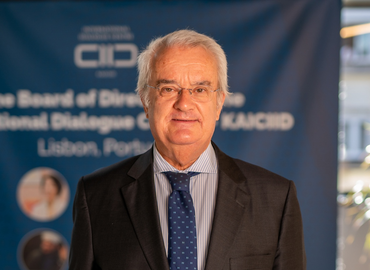
Imagine Europe without the European Convention on Human Rights. No Court in Strasbourg to…

